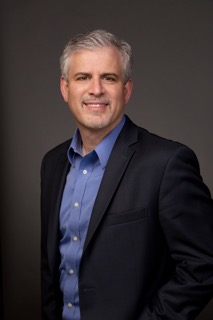Wading into new depths – and sometimes, uncharted waters – the field of psychiatry tackles the unseen and unknown. Psychiatrists and behavioral neuroscientists often pioneer health care, finding solutions to complex medical conditions while investigating the nuances of the human brain. At the Wayne State University School of Medicine, world-renowned researchers and physicians are exploring the complexities of the mind and working to find new breakthrough therapies and clinical treatments. One such physician alumnus, Joel Young, M.D. ’89, has taken great steps to inspire, innovate and break ground for new solutions in mental health care.
“I love what I do,” Dr. Young said. “Right now, especially, we are in an exciting era for psychiatry. For many years I think students were discouraged to pursue it as a medical profession. But the thing that distinguishes psychiatry from many other medical specialties — the fact that it is less tangible and each case is unique — is what truly makes the specialty interesting.”
I think students were discouraged to pursue it as a medical profession. But the thing that distinguishes psychiatry from many other medical specialties — the fact that it is less tangible and each case is unique — is what truly makes the specialty interesting.”
Dr. Young founded the Rochester Center for Behavioral Medicine in Rochester Hills with 60 mental health professionals, making it the largest private psychiatric facility in Michigan. Through his experiences, he wants to inspire future physicians to examine their interests and take a long look at psychiatry. His passion for the specialty, and his hope to encourage others to pursue it, led him and his wife, Mindy Young, M.S.W., C.S.W., J.D. ’86, to start giving back to the School of Medicine. And although Dr. Young has much experience with mentorship and other student engagement activities, he and Mindy felt the time was right to harness the power of philanthropy as their change-making vessel.
“We have established two different funds,” Dr. Young said, “one to support the Department of Psychiatry and Behavioral Neurosciences, and one as a scholarship for students interested in psychiatry.”
Dr. Young hopes his philanthropic support will have an impact on medical students and the future of psychiatric care. He believes in the vision of David Rosenberg, M.D., chair of the Department of Psychiatry and Behavioral Neurosciences, and knows Dr. Rosenberg’s nationally-recognized work can bolster medical student’s confidence and curiosity in the specialty.
“It’s how I came to know psychiatry. In medical school, I had a fantastic mentor — Dr. Ronald Trunsky. Through his mentorship and teaching I became fascinated with the specialty and was encouraged to pursue it. I am so thankful for him and his role in my medical education. I think Dr. Rosenberg embodies those same characteristics,” Dr. Young said.
Dr. Young says he feels privileged to be a doctor, and his passion for his profession has led to a variety of successes within his career.
“I hardly ever have a bad day in psychiatry. I love what I do, and I am grateful every day to the School of Medicine for the medical education I received,” he said.
Dr. Young sees a number of patients, and finds it rewarding to see the impact that psychiatric care has on their treatment and progress.
“I always tell students that starting out you may not feel like you’re making a difference. But longitudinal care is so important, and patients do get better,” he said.
Widely published, he has written several well-circulated books, and is now writing his third. He has also conducted a number of clinical trials, many leading to new prescriptions and treatments. The practice’s latest clinical trial for the drug Esketamine was recently completed and its use approved in March.
“The medication is already available in Detroit,” Dr. Young said. “It is an important prescription for treatment-resistant patients with depression, and I am hopeful that it will have a positive impact on the lives of many people.”
The Rochester Center for Behavioral Medicine — Dr. Young’s practice — provides services to adult professionals struggling with mental health and related illnesses. Dr. Young’s wife provides care for professionals in law and other areas related to the forensic sciences. Her area of expertise includes diagnosing and counseling those in industries with high statistics for depression and anxiety, including physicians. The Youngs have made it a priority to also help medical students struggling with depression, anxiety and other mental health concerns.
“We do treat students, even those from Wayne State,” Dr. Young said. “I think it is so important to give back to your community, and I feel especially strongly about giving back to the School of Medicine. Treating students here, away from campus, is just another way that we can support future physicians.”
The culture surrounding mental health awareness and treatment has changed, and medicine continues to advance at an unprecedented pace. Dr. Young is hopeful for the future of psychiatry. He believes there is much greater awareness of the importance of mental health, and the importance of having psychiatric professionals.
“Psychiatry has been largely de-stigmatized,” he said. “The word is out that it is not a futile specialty. However, my goal is to encourage more students to pursue it.”
Through their philanthropic support of the School of Medicine, their dedication to student mentorship and their continued advocacy for the profession, Dr. and Mrs. Young are certainly accomplishing that goal. His message to future physicians interested in psychiatry: “The waters are good — come on in.”
To learn more about how to support medical students and the Department of Psychiatry and Behavioral Neurosciences, contact Jon Goldstein at jgoldste@med.wayne.edu or 313-577-3033.